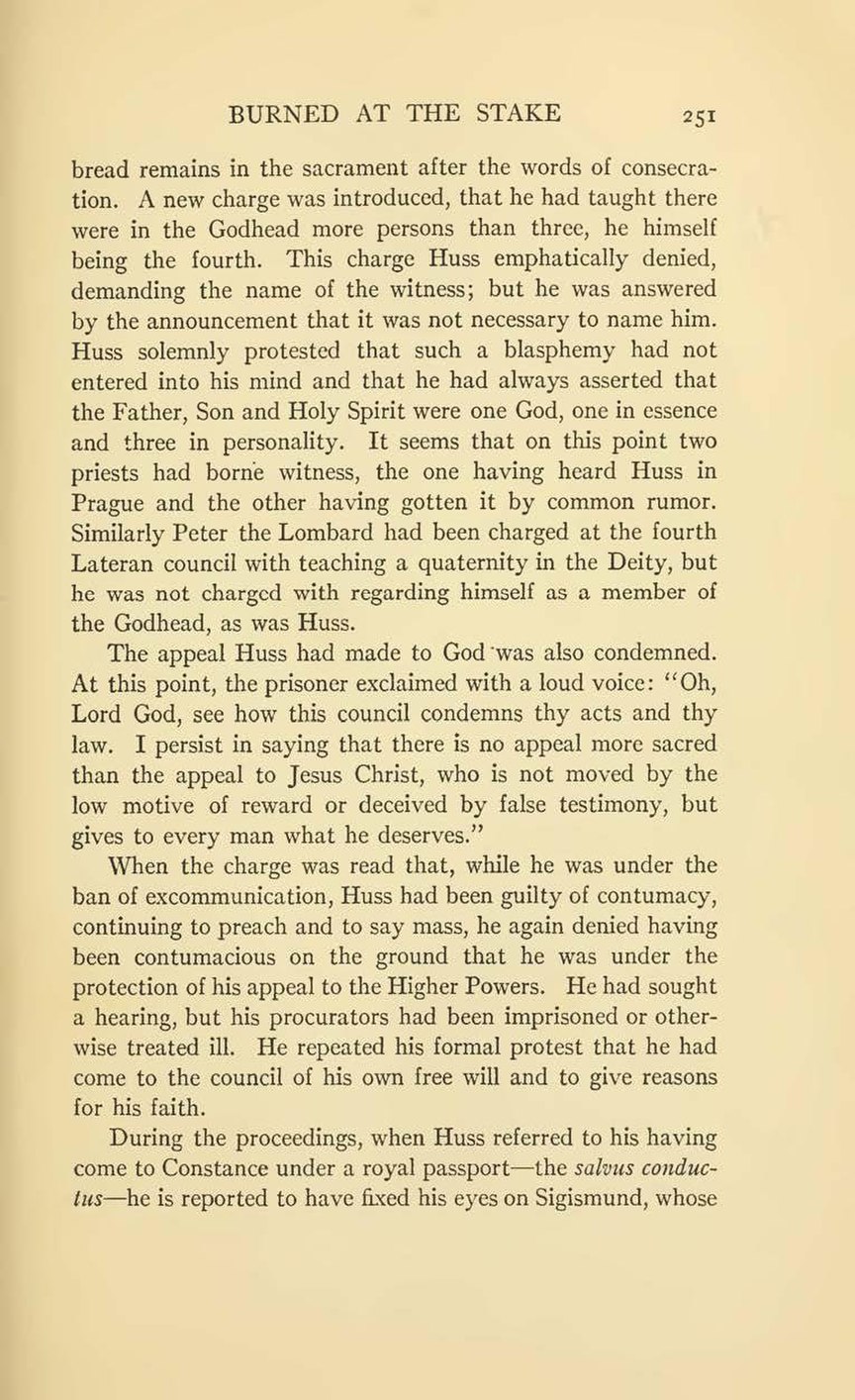bread remains in the sacrament after the words of consecration. A new charge was introduced, that he had taught there were in the Godhead more persons than three, he himself being the fourth. This charge Huss emphatically denied, demanding the name of the witness; but he was answered by the announcement that it was not necessary to name him. Huss solemnly protested that such a blasphemy had not entered into his mind and that he had always asserted that the Father, Son and Holy Spirit were one God, one in essence and three in personality. It seems that on this point two priests had borne witness, the one having heard Huss in Prague and the other having gotten it by common rumor. Similarly Peter the Lombard had been charged at the fourth Lateran council with teaching a quaternity in the Deity, but he was not charged with regarding himself as a member of the Godhead, as was Huss.
The appeal Huss had made to God was also condemned. At this point, the prisoner exclaimed with a loud voice: “Oh. Lord God, see how this council condemns thy acts and thy law. I persist in saying that there is no appeal more sacred than the appeal to Jesus Christ, who is not moved by the low motive of reward or deceived by false testimony, but gives to every man what he deserves.”
When the charge was read that, while he was under the ban of excommunication, Huss had been guilty of contumacy, continuing to preach and to say mass, he again denied having been contumacious on the ground that he was under the protection of his appeal to the Higher Powers. He had sought a hearing, but his procurators had been imprisoned or otherwise treated ill. He repeated his formal protest that he had come to the council of his own free will and to give reasons for his faith. During the proceedings, when Huss referred to his having come to Constance under a royal passport—the salvus conductus—he is reported to have fixed his eyes on Sigismund, whose
